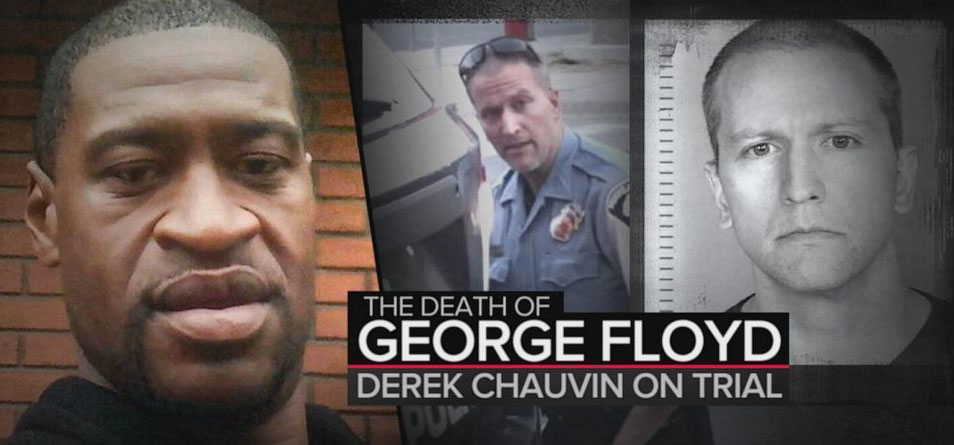
For days it has been on my mind and each time it intrudes I tell myself “leave it outside the off-stump Chisholm, you have too much on your plate to do” The intruder is the urge to write a bit about the televised Chauvin trial re George Floyd’s death.
So, I just took a lunch break shortly after noon and watched yet again a piece of the trial while eating and decided to write. Not that it will get to anyone in the USA remotely connected with the trial but more as an exercise in critical thinking for my current online JTS class and others in my homeland, Jamaica.
Shortly after Floyd’s death I offered a line of reasoning in a critical thinking webinar I conducted, amidst the different causes of death from the State’s medical examiner and the private examiner hired my Floyd’s family.
I told the group that while I am neither a lawyer nor a medical examiner, common sense or a little logical reasoning alone would dismiss the cause of death from the state’s medical examiner which appealed to Floyd’s medical history of drug abuse, heart issues, diabetes, etc.
For me then as now those did not, indeed could not, qualify as causes of his death because he was alive with those issues when he was just arrested, still alive when tackled and handcuffed on the ground, still alive when Chauvin began kneeling on his neck but died later while Chauvin was still kneeling on his neck.
I now borrow unashamedly from my former Seminary classmate Albert Morris’ published column in both of our newspapers in Jamaica titled ‘A Little Logic’ (January, 2021)
Morris put in more philosophical terms what I said in my webinar. He urged:
“There is an acute difference between a cause and a condition and confusing the two is a mistake (fallacy) in logic. So, ponder the two fallacies below from Geisler and Brooks [Come Let us Reason]:
1. The fallacy of confusing cause and condition – owing to lack of clarity on what a cause is as opposed to a condition. ‘A condition is a necessary [factor] for the effect to occur. It is the stage that must be set. The play cannot happen without it, but it does not cause the play. A cause is a necessary and sufficient [factor] for the effect to occur…” ( emphasis added)
2. The fallacy of confusing various kinds of causes
[Of the various kinds the key is] an efficient cause – that which makes things happen. Efficient causes have two species, primary and secondary.”
But Morris did a delightful extra, he provided an illustration to show the difference between condition and cause and especially the role of an efficient cause. He wrote: “You are seeking a parking space and spot one on a downward slope behind a longish line of cars parked almost bumper to bumper, with the front car at the edge of a well known gully or precipice. You are not sure if you should take it given the precarious nature of the front car but in your desperation you decide to take a chance. As you edge closer and closer behind the car at the back your judgement or eyesight goes awry and you hit, albeit slightly, the bumper of the car before which pushes it ever so slightly forward triggering a domino effect of cars moving forward against he car ahead and you see the front car toppling over the edge into the gully/precipice.
You are the efficient cause of that accident because you made the accident happen. Before your arrival, though the front car was parked precariously near the edge of the gully it never went over until after your car set off the domino effect. All of the cars parked before you simply constituted a condition necessary to the accident but they were not sufficient for the accident to have happened…
So then, an efficient cause must be shown to be both necessary and sufficient to explain an effect. Necessary meaning. the effect cannot be explained without it and sufficient meaning, nothing else need be appealed to, to explain the effect adequately.”
Listening during my lunch break today (approximately 12:20 EST) to a Forensic Pathologist on the witness stand, carefully nuancing her answers to the defense attorney for Chauvin, I said to myself, would that they all knew a little logic at least.
Morris in his column voiced an opinion similar to my own conclusion during my webinar, namely that Floyd’s medical history may constitute a condition of his death but Chauvin’s kneeling on his neck for so long was the efficient cause of his death.
